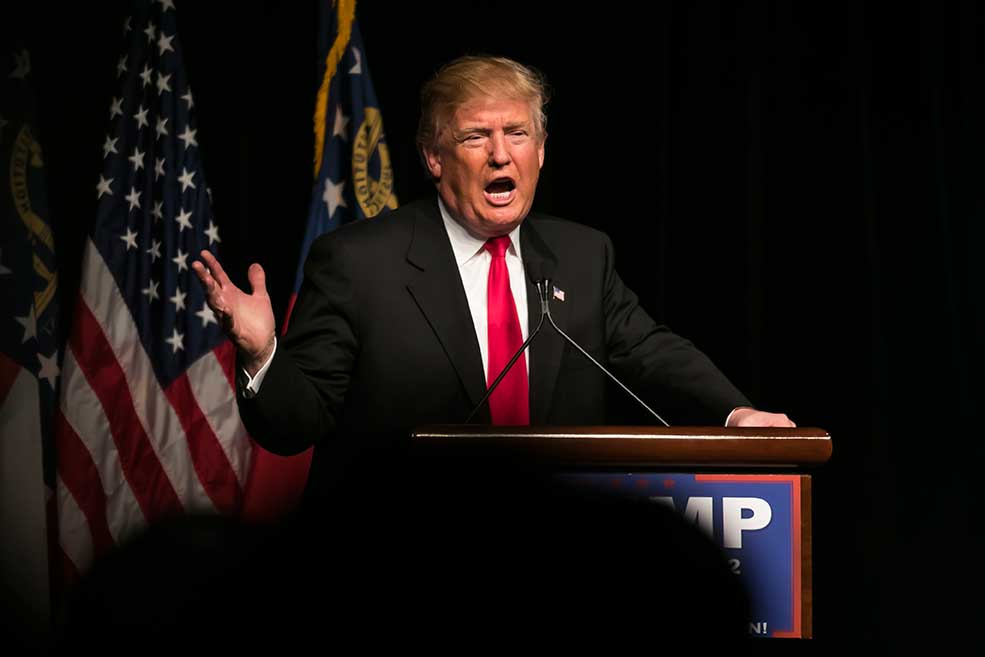













2018 is the year of the ”techlash” – the watershed moment when governments have pushed back against the ever-increasing power of Silicon Valley. Politicians on both sides of the Atlantic have been bashing the tech behemoths of Facebook, Amazon and Google for weakening democracy, creating unemployment, stifling competition and failing to block online extremist material.
In Europe, the EU blasted Facebook and Amazon for tax avoidance and slapped Google with a 2.42 bn euro fine for exploiting its search monopoly position to promote its own online shopping service. And, in recent weeks, we’ve all been flooded with emails from companies about the new General Data Protection Regulation (GDPR) privacy law. It seeks to limit what tech companies can do with our data and can impose large fines for any violations.

Meanwhile, in the US, we witnessed a poor Senate investigation into the role of Facebook in Russian interference in the 2016 US election. And Donald Trump has torn into Amazon for paying ”little or no US taxes” and treating the US postal service as its ”delivery boy”.

It’s not just politicians gunning for the tech giants, either. Procter & Gamble (P & G), the world’s largest advertiser, slashed its spending on digital advertising by over US$ 200m in 2017, The FMCG giant aims to cut its advertising costs by another US$ 400m by 2021. P & G’s pull-back from digital marketing was signalled in a landmark speech by Chief Brand Officer, Marc Pritchard, last year, in which he criticised the closed measurement systems used by Facebook and Google to gauge an ad campaign’s effectiveness.

”We’ve been giving a pass to the new media in the spirit of learning”, he said. ”We’ve come to our senses. We realise that there is no sustainable advantage in a complicated, non-transparent, inefficient and fraudulent media supply chain”.
In March this year, Keith Weed, the CMO of Unilever, also fired a salvo at Silicon Valley in a speech to US advertising executives. He called on Facebook and Google to work towards creating responsible digital platforms, content and infrastructure.

”If we have any hope as an industry of keeping the trust of our consumers, we need to overhaul the standards of behaviour in digital channels”.
Weed met with all Unilever’s digital partners (Facebook, Google, Twitter, Snap and Amazon) at CES in Las Vegas earlier in the year.
”I repeated one point to each and every one of them. It is critical that our brands remain not only in a safe environment, but a suitable one. Unilever, as a trusted advertiser, do not want to advertise on platforms which do not make a positive contribution to society.
” And it is acutely clear from the groundswell of consumer voices over recent months that people are becoming increasingly concerned about the impact of digital on well-being, on democracy – and on truth itself. This is not something that can be brushed aside or ignored. Consumers are also demanding platforms which make positive contributions to society”
Powerful stuff, I am sure you will agree. So why is it that the Travel Retail business has chosen this ‘techlash’ moment to apparently cosy up to Google. By this I am referring to this year’s Global Shopping Forum (GSF), where ‘Google Meets Travel Retail’, which is being held in Hamburg next week at Google Germany’s headquarters. There are 100 places available only and there is blue-chip involvement from companies like L’Oreal, Gebr. Heinemann, Schiphol Airport, Coty and Hugo Boss.


According to the GSF website, this must-attend event will ask: ”how travel retail can bridge the digital gap between travellers and the industry by identifying ‘micro-moments’ – specific situations that present an opportunity to engage with travellers”.
Now, with the travel retail industry struggling to raise poor penetration rates and engage with smartphone-carrying millennials, the lure of such an event is not hard to see. There’s even the shiny promise of ”interactive workshops with Google experts”.
Jan Hieronmi, Google Germany Industry Retail Manager, has said the tech giant wants to ”jump start” its ”cooperation with the industry”. Of course, everyone attending should listen to the Google proposition. But listen with care. For no one should be under any illusions about the warm, supportive tone. Google wants a hefty slice of our industry pie. Initially a simple search engine, Google has disrupted multiple industries over the years – from mobile telecommunications, to computing, broadband fibre provision, the home appliance market, robotics and driverless cars to name but a few.

Given the company’s track record, why should Travel Retail be any different? After all, Google’s main source of income is online advertising and for that it needs detailed consumer data – lots of it. The airport industry is, of course, one of the most data-rich business sectors around. Over 8.2 billion people passed through an airport last year. The majority of these consumers were wealthy, tech-savvy and international in outlook. In other words, just the kind of consumer group Google is interested in.
Does the Travel Retail industry really want to give away this valuable treasure chest of data to a tech giant like Google with no guarantees in return? Does Google, whose revenue was over 1.5 times larger than the entire Duty Free/Travel Retail industry in 2017, really have our parochial concerns close to its heart?


Moreover, given all that we’ve been reading in the news in the past few months, do we actually trust Google to use our customers’ valuable personal information in the right way?
And here’s one last question: once the keys to the treasure chest have been handed over, are we naive enough to believe they will ever be handed back?






















To subscribe free, please enter your email address: